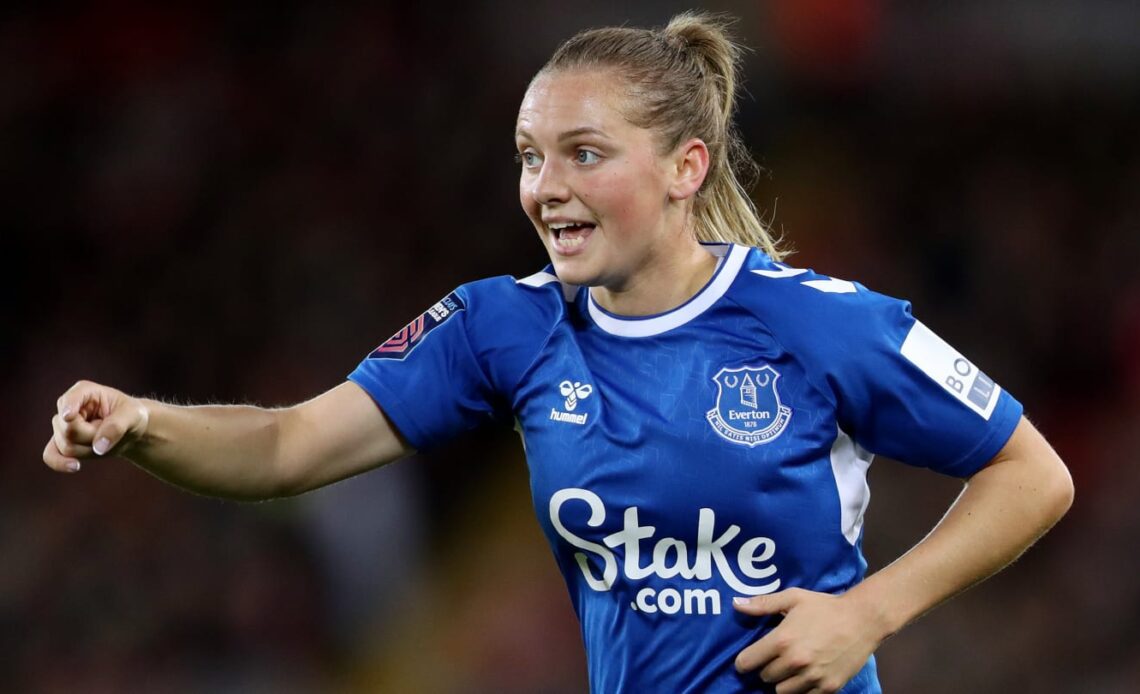Lucy Hope takes being a self-starter to a whole other level.
From moving to Sweden aged 19 for her first taste of professional football, to singlehandedly finding herself an agent to help her land a full-time contract, the 26-year-old’s initiative has driven her from amateur Scottish football to WSL high-fliers Everton.
Hope (nee Graham) discovered her love for football in the school playground, and began her senior career at Forfar Farmington aged just 15.
“When I think back now it’s quite strange how I had the confidence to actually go into that kind of changing room quite young,” Hope told 90min. “I think now when I see the young girls coming through in the changing room, how daunting it can actually be.
“But I think it really brings out your personality. You see and hear a lot of things – a lot of banter – that is probably ahead of your own time. But you kind of just sit there in the corner and chuckle to yourself.”
Hope moved to Hibernian 18 months later, before an injury at Swedish side Mallbackens in July 2015 presented the opportunity of a half-season loan to the Damallsvenskan outfit. She jumped at the chance.
Speaking minimal Swedish – “I can count to like 10 but that’s not very handy” – posed obvious challenges, but helped improve other sides of her game.
“I think football speaks its own language, and it really developed me as a visual learner and [helped me to] see pictures around the pitch a lot clearer rather with a voice that I didn’t understand what they were saying,” Hope added. “So for me it really helped me observe football.”
Hope returned to Hibs in January 2016, but with the Scottish outfit still an amateur side, she had to juggle football with a job at Tesco. The Scotland international would work a supermarket shift from 6am until midday, do her gym session at Scotland’s national performance centre in the afternoon, before driving to club training in the evening.
“It was kind of full on but obviously I needed a job to fund and facilitate myself to get back and forth to training,” she explained. “It seemed to work out, they always gave me time off, and they always encouraged it.
“I’d gotten into the national team one time and put me on one of the emails as like somebody to look out for in Tesco. They were always singing my praises, they were never kinda frustrated that I was taking time off. I used to go and have to chat with my manager quite a lot: I need to go away again, I need to go away again.”
Hibs qualified for the Champions…
Click Here to Read the Full Original Article at 90min EN…

